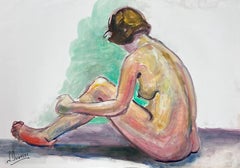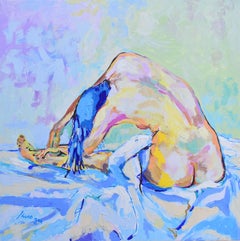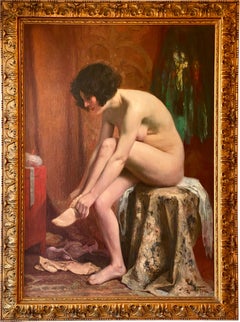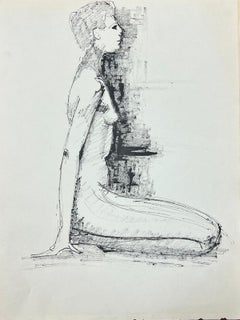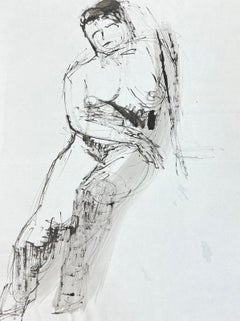Nude Paintings
1970s Impressionist Nude Paintings
Oil
2010s Impressionist Nude Paintings
Canvas, Oil
Early 20th Century Impressionist Nude Paintings
Canvas, Oil
Mid-20th Century Impressionist Nude Paintings
Charcoal, Pencil
Mid-20th Century Impressionist Nude Paintings
Charcoal, Ink
2010s Impressionist Nude Paintings
Canvas, Oil
2010s Impressionist Nude Paintings
Oil
1970s American Impressionist Nude Paintings
Cotton Canvas, Acrylic
Early 20th Century Impressionist Nude Paintings
Canvas, Oil
2010s Impressionist Nude Paintings
Canvas, Acrylic
2010s Impressionist Nude Paintings
Canvas, Oil
2010s Impressionist Nude Paintings
Paper, Charcoal
2010s Impressionist Nude Paintings
Paper, Charcoal
2010s Impressionist Nude Paintings
Paper, Charcoal
2010s Impressionist Nude Paintings
Burlap, Oil
Mid-20th Century Impressionist Nude Paintings
Oil, Cardboard
1940s Art Deco Nude Paintings
Crayon, Watercolor
Mid-20th Century Impressionist Nude Paintings
Oil
19th Century Impressionist Nude Paintings
Canvas, Paper, Chalk
19th Century Impressionist Nude Paintings
Canvas, Oil
1950s Art Deco Nude Paintings
Oil
1930s Art Deco Nude Paintings
Canvas, Oil
1920s Art Deco Nude Paintings
1920s Art Deco Nude Paintings
Canvas, Oil
1930s Art Deco Nude Paintings
Canvas, Oil
Shop Antique and Vintage Nude Paintings
Today, antique and vintage nude paintings are popular works of art to consider when decorating your home.
The nude as an artist’s subject gained prominence in ancient Greece, wherein male nudes were rendered equivalent to power and victory owing to the Greeks’ celebration of men in athletic events as well as in the worship of the gods who populate Greek mythology. Nude sculptures in Greece positioned men as warriors — strong, moral and fearless. The naked female figures featured in prehistoric art and the art of ancient civilizations, on the other hand, were symbols of fertility and procreation.
Italian painters of the 1400s looked to the magnificent nude sculptures of Greek and Roman art for inspiration. By the end of the century, drawing of undressed models was part of the common practice for these artists. When Christianity had spread through Europe, however, Christians condemned Renaissance nude paintings — most of which are considered famous nude paintings today — because they were erotic, exploring, in some cases, same-sex relationships as well as women’s sexual power. Censorship was the order of the day, except for religious-themed works, such as 1526’s iconic Adam and Eve, an oil painting made by German Renaissance painter Lucas Cranach the Elder, one of more than 50 works made in his workshop based on the biblical story. Tuscan painter Daniele da Volterra was famously hired to paint fig leaves over the most exposed figures of Michelangelo’s Sistine Chapel. While freedom of expression for artists has expanded significantly since then, prudish censorship persists when it comes to Renaissance nudity.
On 1stDibs, find a wide variety of authentic antique and vintage nude paintings, from works focused on the reliably reclining figures of Impressionist-style art to oil paintings created by contemporary artists who often work to reject the idealized human forms and unrealistic depictions of female nudes that preceded them. Additionally, find a primer on 1stDibs on how to arrange wall art as well as tips on creating salon-style gallery walls for presenting the wonderfully provocative nude paintings you’ve decided to bring into your home.
